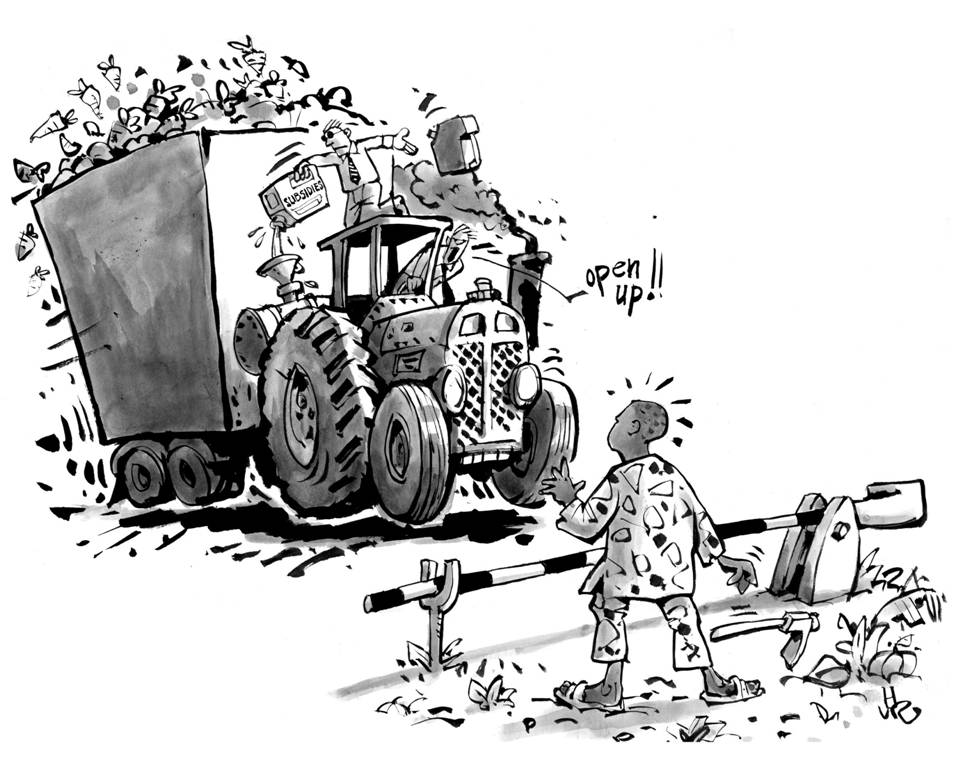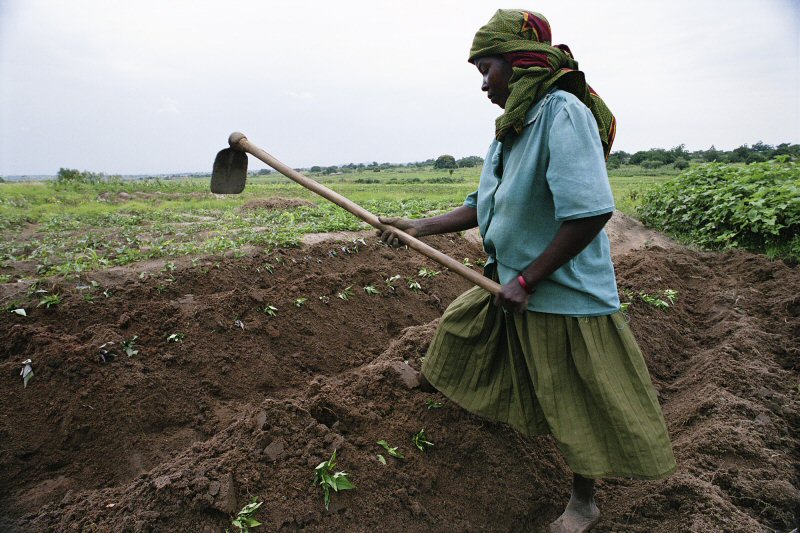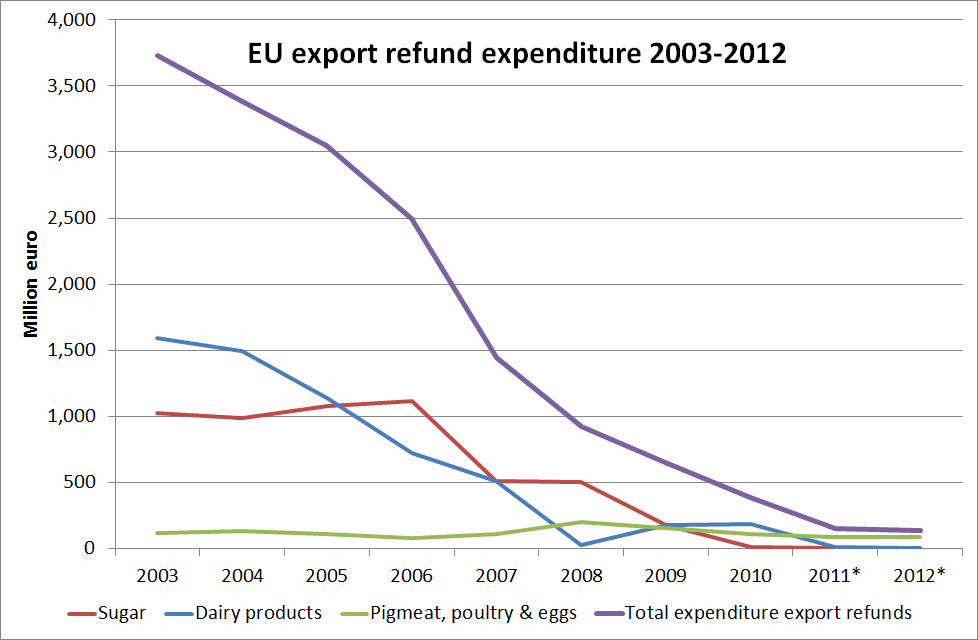As long as I have been commenting on the CAP, its most criticized feature has been its use of export subsidies, also called export refunds. In the late 1980s and early 1990s, the EU was spending €10 billion a year on export subsidies, almost one-third of the CAP budget, in order to allow traders to get rid of the EU’s growing export surpluses by paying the difference between the EU’s high internal prices and lower world market prices.
Export subsidies allowed EU exporters to grab market share in import markets from competing exporters, put downward pressure on the level of world market prices, and competed unfairly with local producers in many developing countries.… Read the rest
Export refunds and Africa
Export subsidies on agricultural products are back in the news again following the somewhat surprising declaration by Commissioner for Agriculture and Rural Development Dacian Ciolos in his opening speech at the Green Week on Berlin earlier this month (16 January), of his readiness to stop the use of export refunds for exports to developing countries in Africa with which the European Union has an Economic Partnership Agreement (EPA). He stressed that this would be an important step in terms of coherence between EU agriculture and development policies. He said:
… Read the restSince 1 January, EU legislation is also very clear: export refunds have ceased to exist as a means of systematically supporting a sector.
The end of export subsidies?
Well, not quite. But with the publication of the final texts of the CAP political agreement last week we can now scrutinise the detail and fine print. Changes to the language on export subsidies in the single Common Market Organisation regulation go further than before in limiting the future use of export subsidies, without quite taking the final step of eliminating them altogether.
I previously discussed the EU’s use of export subsidies in this post last year. I highlighted both the sharp fall in the use of export subsidies by the EU, the high cost to taxpayers and citizens of using this instrument to support market prices and farm incomes and the growing political support for their abolition.… Read the rest
End the use of export subsidies in the 2013 CAP review
A rather specific feature of the EU’s agricultural policy has been its use of export subsidies to maintain market prices on its domestic market in the past. While the EU was not the only country to make use of this policy mechanism, it accounted for around 90% of global expenditure on formal export subsidies (while arguing that other countries provide export support through more indirect means, such as through state monopoly marketing boards or through food aid).
EU use of export subsidies has fallen dramatically although they still have not disappeared. Total expenditure on export refunds fell from €3.8 billion in 2003 to a projected €139 million set aside in the EU’s draft 2012 budget (at their peak in the late 1980s and early 1990s, they amounted to €10 billion per year).… Read the rest




